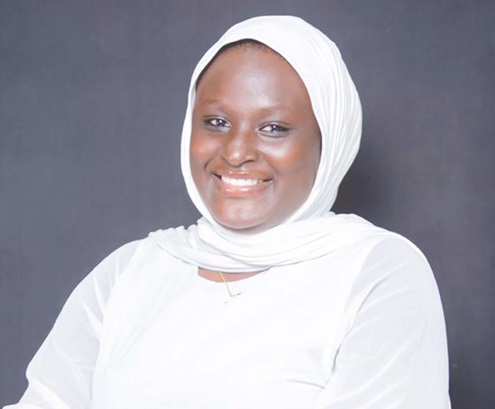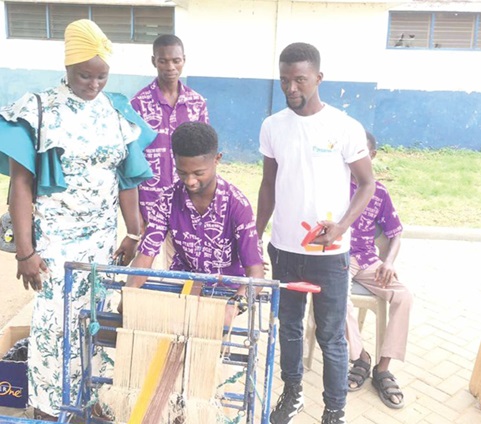
2023 District Level Elections: Time to vote women
I know I’m just a little girl.
But I still believe I have what it takes to make a difference and in my own small way, contribute to the development of the country I love.”
These were the words of 23-year-old Barikisu Mahei who is contesting the Assembly member position for the Adjei Kojo electoral area in the Tema West constituency in the Greater Accra Region.
Ms Mahei, who completed the Islamic University College Ghana (IUCG) this year, is one of the ever-growing number of women who are increasingly showing interest in politics at both the local and the national levels.
However, just like many women, she has been met with a myriad of challenges which are actively affecting her capability to fully campaign and get her message across.
“The challenges are uncountable.
Top on the list is financial. Some of the activities I want to undertake, I’m unable to.
I reached out to NGOs and some prominent people but I didn’t get any positive feedback.
Some of them also wanted to sleep with you before they helped.
I had to even sell my phone to use a lesser model because I needed the money,” she lamented.
Ms Mahei explained how she faced constant discrimination, verbal abuse and lack of support all because she was a woman who wanted to serve her community and her nation at large.
“I also face discrimination.

Ms Mahei looking on as a man with special needs weaves a cloth as part of an inclusive technical education programme
Some are saying I am a lady and too young to contest such a position and I’m not even married so what shows I can handle that office,” she said.
“Some Islamic leaders are saying a woman cannot lead and that my place is in the kitchen and I was even attacked at a mosque for campaigning.
He threatened to embarrass me.
But I just had to keep calm because if you want to be a leader, you can’t react to everything,” Ms Barikisu added.
She, however, remains adamant in her pursuits and won’t let such negativity deter her from offering her community the best.
Not unique
Many women, who dare to venture into the male-dominated space of politics, are met with criticisms meant to dissuade them from their choices.
This is as a result of a historical and cultural patriarchal system that has created an institutional and systemic marginalisation of women, making it nearly impossible for them to actively participate and be represented.
This has led to the perpetual low representation of women in local government.
In fact, the highest number of elected women was recorded in 2006 when 478 got elected as Assembly Members which was still grossly insignificant compared to the number of their male counterparts elected.
Even sadder, data available indicate that since 2010, the number of women elected as assembly members has been declining.
Even with the power of appointment of metropolitan, municipal, and district chief executives (MMDCEs), only 38 women are MMDCEs out of 216 metropolitan, municipal and district assemblies (MMDAs).
As it stands now, out of 6,272 elected district assembly members, only 245 are women, a sad reality for a nation whose population is dominated by females.
The country has therefore woefully failed to attain the 30 per cent United Nations (UN) recommended minimum threshold in women representation in the assemblies, further entrenching gender-based exclusion.
Time for change
If Barikisu’s story is anything to go by, the time for change has come.
We need to be more intentional about tackling the barriers and the challenges that face women in politics.
These include implementation of quotas such as the introduction of Affirmative Action measures to ensure a minimum level of women's representation; encouraging political parties to actively recruit and support female candidates; working towards eliminating gender bias and stereotypes that may discourage women from entering politics and conducting awareness campaigns to highlight the importance of women's participation to shift societal perceptions and emphasise the positive impact of diverse representation.
Also important is providing training programmes and workshops tailored for women interested in politics; facilitating networking opportunities for women interested in local government by connecting them with established women leaders, mentors, and support groups.
In this regard, the National Association of Local Authorities of Ghana (NALAG), in partnership with the Federation of Canadian Municipalities (FCM), is spearheading such an agenda through the; “Partnerships for Municipal Innovation – Women in Local Leadership (PMI-WILL)” project.
It seeks to increase women’s capacity to lead in local governance and increase local government’s capacity to deliver inclusive, gender-responsive services.
PMI-WILL does this through supporting capacity development, outreach, awareness-raising, and engagement activities by focusing on training to local government officials on gender-inclusive governance and gender- responsive service delivery and development of action plans to promote women’s participation in local government and implementation of priority activities such as training and mentoring for potential candidates, public awareness-raising of women’s participation in local governance, among others.
Also playing a critical role is the Renel Ghana Foundation, a non-governmental organisation with interest in empowering the youth, particularly women, who have significantly helped Ms Barikisu in her political ambitions.
With their help, she was able to embark on various community-centred activities, organise meetings with traditional rulers and opinion leaders and reach a large group of people.
DLE
District Level Elections (DLEs) are slated for tomorrow (Tuesday, December 19, this year) the Local Government Act, 1993 (Act 462), which provides for the election of assembly members to MMDAs.
Statistics from the Electoral Commission (EC) show that the contestants are made up of 18,755 assembly member candidates and 47,502-unit committee member candidates, bringing the number to 66,257 candidates.
They are seeking to serve in 6,215 electoral areas across the 216 MMDAs. Out of the 18,755 candidates vying to become assembly members, 6,215 will be elected to serve.
For the unit committee members, 31,075 will be elected out of the 47,502, given that each electoral area has five-unit committee members.
It is still unclear just how many of the candidates in the two groups are women but if history is anything to go by, the numbers won’t be anything to write home about.
Women’s continuous exclusion means the voices and ideas of more than half of the population are ignored.
Meanwhile, studies have shown that having a mix of genders in decision-making bodies enhances overall governance performance.
It leads to improved problem-solving, increased innovation, and better decision outcomes due to a wider range of perspectives and skills being brought to the table.
In short, women's representation in local government enhances diversity, promotes gender equality, serves as a catalyst for positive social change, and contributes to more effective governance.
Previous elections had failed us, but let’s write a different story tomorrow.
Let’s vote women.
The writer is a Gender Advocate/Journalist, Daily Graphic
E-mail:
